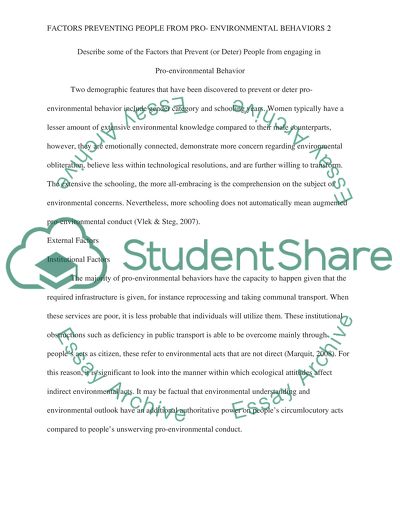Cite this document
(“Describe some of the factors that prevent (or deter) people from Essay - 2”, n.d.)
Retrieved from https://studentshare.org/psychology/1630772-describe-some-of-the-factors-that-prevent-or-deter-people-from-engaging-in-pro-environmental-behaviours
Retrieved from https://studentshare.org/psychology/1630772-describe-some-of-the-factors-that-prevent-or-deter-people-from-engaging-in-pro-environmental-behaviours
(Describe Some of the Factors That Prevent (or Deter) People from Essay - 2)
https://studentshare.org/psychology/1630772-describe-some-of-the-factors-that-prevent-or-deter-people-from-engaging-in-pro-environmental-behaviours.
https://studentshare.org/psychology/1630772-describe-some-of-the-factors-that-prevent-or-deter-people-from-engaging-in-pro-environmental-behaviours.
“Describe Some of the Factors That Prevent (or Deter) People from Essay - 2”, n.d. https://studentshare.org/psychology/1630772-describe-some-of-the-factors-that-prevent-or-deter-people-from-engaging-in-pro-environmental-behaviours.


